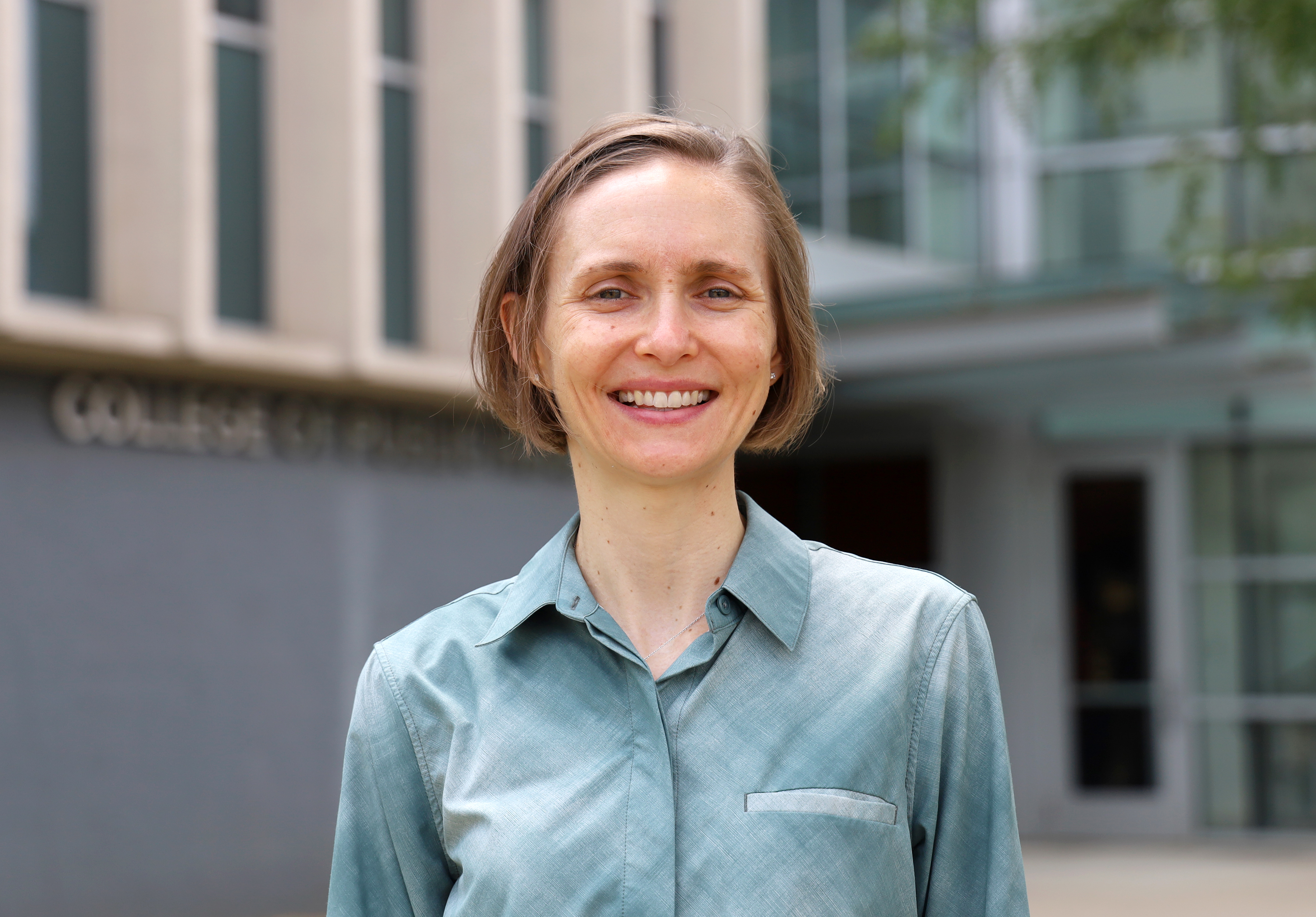Public Health Buckeyes: Amy Kless
Master’s student explores nutritional epidemiology in second act
By Kristen Mitchell

Meet Amy Kless, a master’s student in epidemiology whose drive to help others motivated her decision to switch careers and study public health. At the College of Public Health, she’s had the opportunity to learn more about the association between diet and health.
What inspired you to pursue a public health education after working in a different industry?
Growing up, I was an avid fan of the television medical drama “ER”. I was always fascinated to learn about different medical conditions and patient outcomes. I never considered pursuing a degree in the field of health due to my fear of blood and needles. Instead, I became a civil engineer and followed in my father’s footsteps by working in construction.
While I enjoyed the problem-solving aspects of my career, I always feel like something was missing. I longed for a career that was more fulfilling, one where I would be able to make an impact on people’s lives. I scoured the internet in search of a degree that would provide me with the opportunity to improve individuals’ well-being that did not require me to work in the field of medicine. Lo and behold I stumbled upon public health. More determined than ever, I resigned from my job and started my new life in public health.
What public health topics are you most passionate about?
I am most passionate about nutritional epidemiology, especially the association between dietary patterns and health outcomes, different measures of dietary quality and the use of biomarkers to verify energy intake.
It has also been interesting to learn how the focus of research on nutrition and health outcomes has shifted in the last 40 years from a focus on single nutrients (Vitamin C, thiamin, Vitamin A, etc.) to a focus on dietary patterns has a whole (Keto, Paleo, Mediterranean).
What have you enjoyed most about the epidemiology program?
Everything — I have enjoyed the opportunity to take courses with a variety of professors who bring their unique perspective, as shaped by their research and life experiences, to the classroom. I feel like the professors are invested in ensuring that I am successful as a student. The smaller class sizes have allowed for more personal interactions with my classmates and professors.
What are you looking forward to most about this coming academic year?
I am looking forward to being a graduate teaching assistant and having the opportunity to interact with students and conducting research on the association between dietary patterns and breast cancer in predominately Black populations with Assistant Professor Fred Tabung. I am also really looking forward to going to football games — especially the game against That Team Up North!
What are your goals for the future?
After completing my master’s degree, I plan on continuing my academic journey by obtaining a PhD in epidemiology. Long term, I would like to become a professor where I can teach courses and conduct research in the field of nutritional epidemiology. I finally feel like I found my niche. Through teaching and research, I am able to make an impact on the lives of others and satisfy the needs of my inquisitive mind.
Do you have any advice for future public health students?
If you have class with a professor who does research in a field that you are interested in, ask them about what they are working on and if there are any opportunities for you to get involved. Do not be afraid to reach out an ask for help. Your professors want you to succeed and will help you do so as best they can.
Be inquisitive, keep an open mind, give yourself a little grace when you are struggling, and most importantly, never stop asking: “Why?”
About The Ohio State University College of Public Health
The Ohio State University College of Public Health is a leader in educating students, creating new knowledge through research, and improving the livelihoods and well-being of people in Ohio and beyond. The College's divisions include biostatistics, environmental health sciences, epidemiology, health behavior and health promotion, and health services management and policy. It is ranked 22nd among all colleges and programs of public health in the nation, and first in Ohio, by U.S. News and World Report. Its specialty programs are also considered among the best in the country. The MHA program is ranked 5th and the health policy and management specialty is ranked 21st.